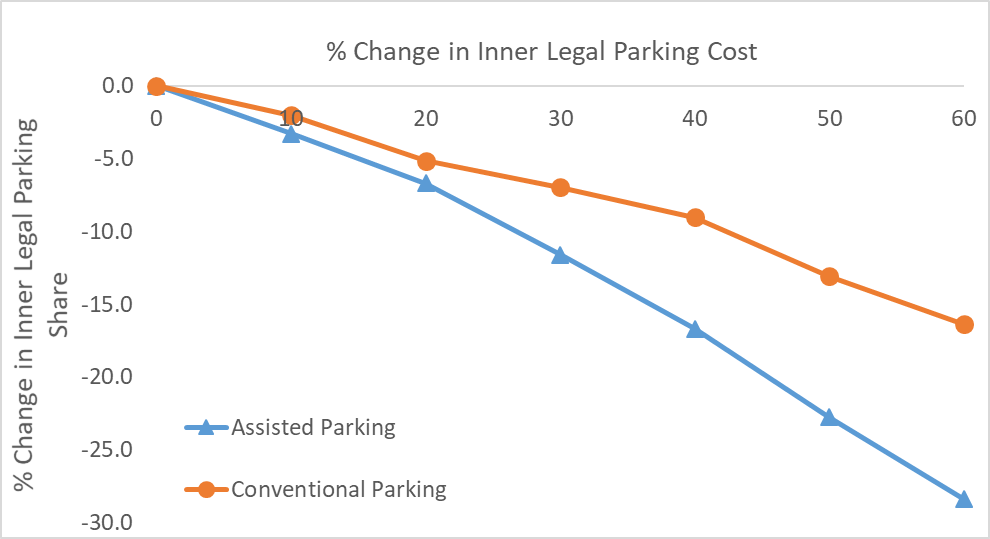Bo Wang, MASc thesis, Civil Engineering, 2019
Professor Matthew J. Roorda, Supervisor
Summary
The choices and behaviours of drivers who park on the street have significant consequences for the transportation system. For example:
- cruising for parking increases traffic congestion
- illegal parking can lead to increased congestion, accidents, and loss of revenue
Parking decisions are affected by parking policies – such as where parking is made available, for how long, and at what cost – and the use of parking assistance systems that provide real-time parking information.
To minimize congestion and other negative results of drivers’ parking decisions, it’s important for policymakers to understand drivers’ parking behaviours, so that they develop parking policies which minimize negative effects on the transportation system.
This study develops a stated preference game simulation survey to collect potential respondents’ on-street parking choices in the presence of legal and illegal parking alternatives and parking enforcement, and the survey has scenarios with different levels of parking assistance. Three types of discrete choice models are estimated based on the collected data to analyze drivers’ parking choice process and their perceptions of various parking attributes. The models are also compared to evaluate the effects of parking ITS applications on driver’s parking strategies.

The estimated models show a negative sign for legal parking cost, which is intuitive, meaning drivers prefer legal parking spots with low parking cost.
In the comparison of respondents’ perception toward legal parking cost between conventional parking and parking with the assistance of ITS applications, the models indicate that they are more sensitive to legal parking cost increases during parking decision makings when they are in assisted parking. As illustrated in the figure, as one of the legal parking alternative’s parking cost increases, the percentage drop of its share is higher in assisted parking than in conventional parking.
Similar trends are seen for respondents’ perception toward illegal parking citation probability.
Demo video of iCity Park on YouTube.
Supervisor contact information
Professor Matthew J. Roorda
Tel: 416-978-5976
matt.roorda@utoronto.ca
